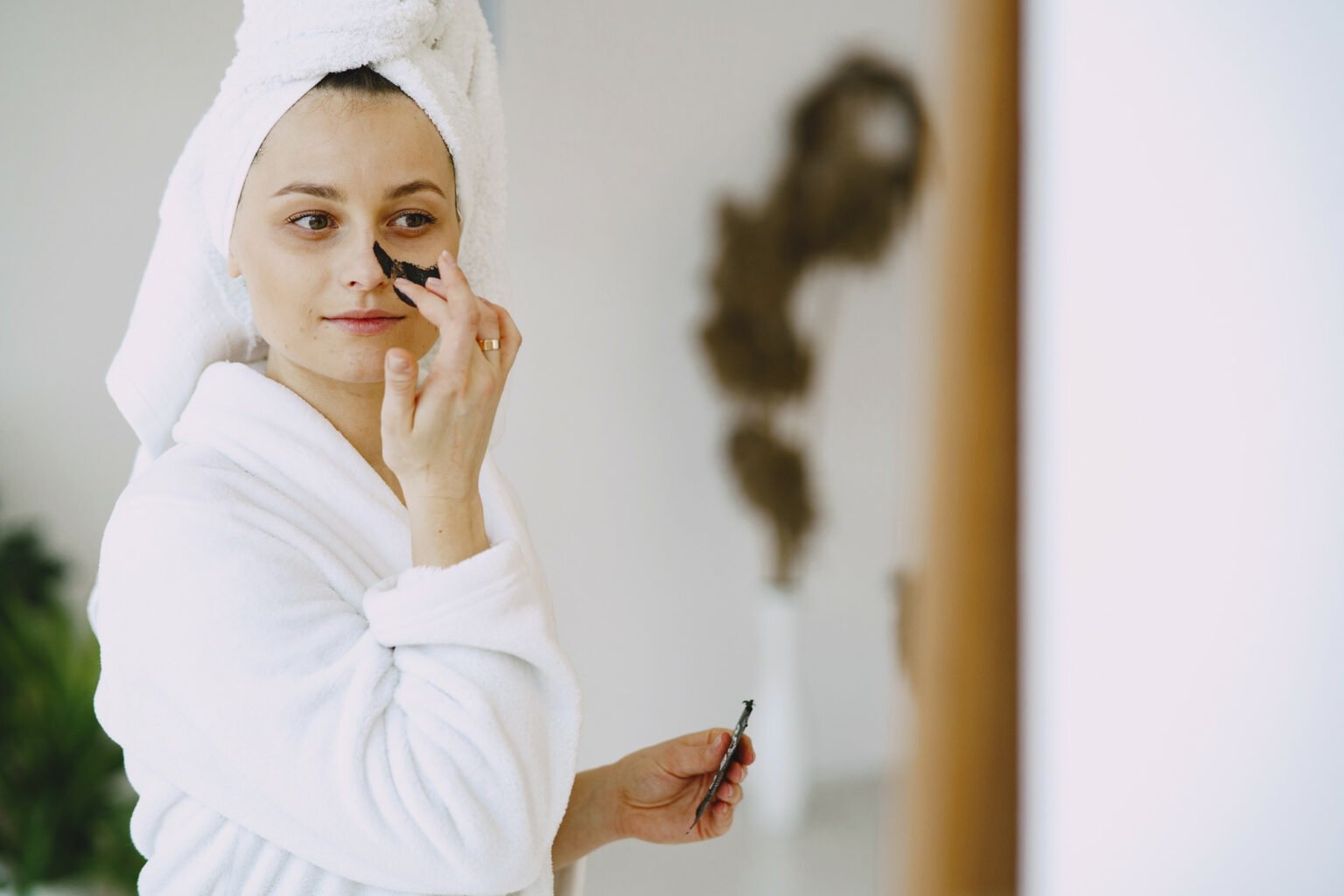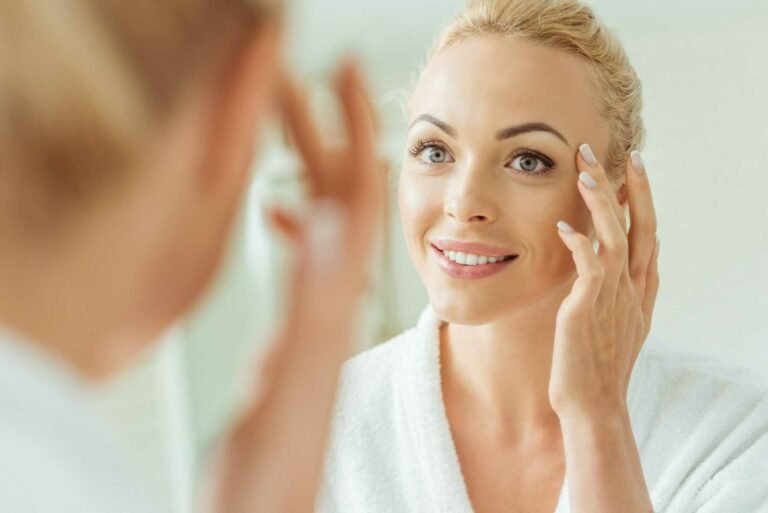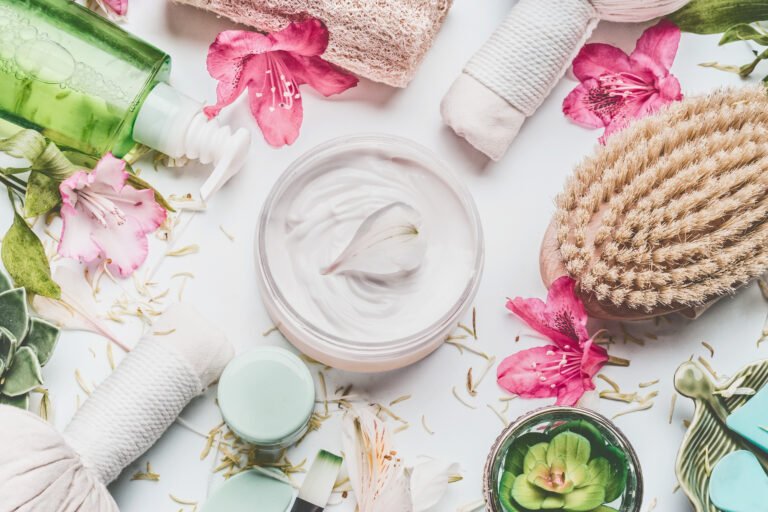Effective Anti-Aging Skincare Routine | Step-by-Step
- Author: Ingredient Secret
- Publish date:
- Categories: Skin Care

Table of Contents
How many tired cliches have you heard about aging?
Age before beauty. With age comes wisdom, and you’re only as old as you feel comes to mind. And let’s not forget that 50 is the new 40.
There’s absolutely nothing wrong with feeling happy in your own skin (another cliché). But if you’re not satisfied with your skin, what can you do about it?
We have a few ideas.
You can buy the most luxurious foundation, but if you’re covering up a lifetime of neglect, it won’t much matter. You need the benefit of a solid anti-aging beauty routine.
Are you a late arrival to the anti-wrinkles skin care party? Perhaps you’ve always treated your skin well, but your current regimen isn’t delivering your desired results.
Either way, we’ve got you covered. Taking a minute to read this guide on anti-aging skin care is the best gift you can give yourself today.
Find a Creamy Cleanser That Loves Your Skin
The best anti-aging skin care routine begins with daily cleansing.
By the way, you’re never too young to use the best cleanser for your skin type. Your skin will thank you, today and years from now.
When you shop for a cleanser, look for one formulated for your skin type. For example, if you have dry skin, you’ll want a creamy cleanser.
Cream-based cleansers work fine for people with normal skin, too.
Regardless of your skin type, you’ll want to avoid cleansers with the following ingredients:
- Alcohol
- Benzoyl peroxide
- Sodium lauryl sulfate (SLS)
Today, many facial cleansers on the market contain one or more of these ingredients. All can have a drying effect on your skin.
Tip: Be careful about using facial bar soaps. Many contain skin-drying ingredients, so you’ll need to look carefully at the packaging.
A Word About Dry Skin
Did you know dry skin is more susceptible to premature aging? You know you have dry skin when it feels tight and flaky after cleansing.
It’s one of the first signs of aging skin, but dry skin isn’t only a problem for older women or men.
Skin begins to age around age 25, with noticeable signs showing up by the time you reach your early thirties. That’s a little surprising since the anti-aging skincare ads target older women.
What happens to trigger the anti-aging march so early in life?
The body begins manufacturing less collagen right around 25 years old. It’s normal, but the reduction in collagen results in a loss of skin elasticity.
Several signs of aging skin include:
- Dullness
- Fine lines and wrinkles
- Uneven skin tone
- Blotchy skin
- Age spots
And, of course, a genuinely telling sign is dry skin.
You can see how vital it is to begin your anti-aging skin care regimen as early as possible. Dry skin or not, if you go the extra mile to follow your skin care program, you’ll help your skin to look radiant at any age.
Things to Avoid When Cleansing
So, you know cleansing is a significant component of your daily skincare routine, but most people make at least a few mistakes when they cleanse.
Here are the biggies:
- Steaming hot water
- Not removing makeup first
- Failure to rinse after using a makeup cloth
- Harsh scrubs
- Using a cleansing brush every day
Hot water may feel wonderful and relaxing but can rob your skin of essential oils.
Even the best cleanser doesn’t always remove every trace of makeup—particularly eye makeup—and many women rely solely on their facial cleanser to do the job. A makeup remover cloth prepares your skin for the real cleansing.
Don’t forget to rinse with water after using the makeup remover cloth.
If you sometimes use a cloth makeup remover for regular cleansing, this is vital. You don’t want to leave any residue from the cleansing ingredients or tiny traces of dirt and makeup on your face.
Harsh scrubs are a no-no for any skin type, but even more so if you’re trying to curb the effects of aging. Unless you choose a scrub with soft beads such as jojoba, or ivory palm seeds, you put your skin at risk for early wrinkles, fine lines, and broken capillaries.
A mechanical cleaning brush can be more effective than your fingers or a washcloth, but using one too often can irritate dry or sensitive skin.
Exfoliate With a Gentle Touch
Exfoliation is another tool you should keep in your skincare toolbox. It sloughs off dead skin cells, which helps brighten the appearance of your skin.
Proceed with caution.
Many women are overzealous with exfoliation. They do it too often and use products too harsh for their delicate skin.
A gentle scrub can work wonders on your skin if you use it no more than three times per week.
You can also use chemical exfoliation if you find a product that won’t aggravate your skin. Glycolic and salicylic acids are common ingredients in these products. Look for those that also contain healing ingredients such as Vitamin K.
Make exfoliation part of your morning care routine. Since skin repairs itself at night, exfoliating in the morning, followed by your creamy cleanser, should remove the dead skin cells.
Should You Use Serum?
Anti-aging serums are everywhere. Most brands offer them, and many women love them.
Why? Because they work!
Serums penetrate the skin in ways moisturizers and other products can’t. You’ll find serums that perform a wide range of skin miracles, including those that claim to:
- Hydrate
- Exfoliate
- Brighten
Choosing the best serum means making sure the one you buy contains medical-grade ingredients.
They may cost a little more than those offered by mass-produced brands. You get a product filled with high-quality ingredients backed by research and clinical trials in exchange for the higher price tag.
There is a caveat!
Some serums contain potent ingredients, including retinol. If you also use prescription retinol, combining it with your serum could cause skin irritation. Make sure you speak to your dermatologist when adding products to your anti-aging skin care regimen.
If you decide you’d like to try a serum, apply it after cleansing and before using your facial moisturizing cream.
Why You Need Extra Moisture in Your Skin Care Routine
Earlier, you learned that your skin begins the aging process in your mid-20s with a reduction in collagen. In your 30s and 40s, hyaluronic acid levels start to decrease. Say “hello” to more noticeable fine lines and deep wrinkles.
Have you heard of hyaluronic acid?
It’s a primary ingredient in many mainstream anti-aging products. The reason manufacturers include hyaluronic acid in their products is that when you apply it to your face, it can help your skin replenish lost moisture. It also helps skin cells retain moisture.
You’ll find hyaluronic acid listed on the label of many serums, moisturizing creams, and some makeup foundations.
Even if you don’t buy a product containing hyaluronic acid, you can still enjoy the benefits of the extra moisturizing ingredients found in other anti-aging products.
Have you heard about the benefits of ginseng and other natural herbal ingredients?
Ginseng, particularly Panax, a.k.a. Asian ginseng, is an effective anti-aging herb found in many skin care products, including moisturizers. You can also find ginseng in cleansers and serums.
Look for moisturizers that say they revive skin tone. Also, be on the lookout for those that stimulate skin cell renewal.
The key to getting the most from your moisturizer is to apply it in the morning and evening. Don’t forget to moisturize your neck and chest area. Your décolleté needs protection from dryness and fine lines, too.
The Eyes Have It
Your eyes look so tired! It’s the first thing people notice when they get up close and often one of the first comments made to you by a concerned friend.
Dark circles, bags, and fine lines around your eyes are all things that make you look tired. They’re also visible signs of aging.
You can combat dark circles and puffiness with a hydrating eye cream. Use it in the morning and at night.
A rollerball applicator will help gently massage the cream around the eye area.
Tip: Don’t wait to care for the skin around your eyes until you notice signs of aging. You’re never too young to add an eye cream to your skin care program.
Should You Use a Facial Oil?
Several things can impact your skin’s natural oil production. Aging is one, but so is regular exposure to sunlight. We’ll cover sunscreen as part of your anti-aging routine later in this article, but for now, let’s talk about using facial oil.
When you notice your skin has a lackluster appearance, it’s likely dehydrated. Facial oil offers a nourishing boost. It helps lock in the moisture from your anti-aging face cream.
Choose a lightweight oil that absorbs quickly. Apply it over your moisturizer.
Choose an Anti-Aging Foundation
Many makeup products are anything but hydrating. If you have dry skin, you may even avoid using foundation because you haven’t found one that doesn’t dry out and irritate your skin.
You don’t need to avoid wearing makeup. Instead, find products that include some of the same features are your anti-aging skin care essentials.
Go for a hydrating foundation, but make sure it’s lightweight. Read the ingredient label. You’ll notice several ingredients designed to help combat the signs of aging that you also find in your cleansers and moisturizers
Avoid skin-drying makeup products!
Don’t stop at hydrating foundations. Shop for concealers, blush, and eye makeup (shadows, mascara, eyeliner) that help defend your skin against the signs of aging.
Avoid Ultraviolet Ray Damage
Caution about getting too much sun is nothing new. Medical professionals have been talking to us about reducing the risks associated with UV rays for years.
Spending too much time in the sun without protection sets you up for early signs of aging and skin cancer.
Beyond minimizing your time spent in direct sunlight and applying sunscreen, there are other measures you can take. Why not add protection from UV damage to your skin care routine?
Many moisturizers and foundations today include sunscreen in their list of ingredients. Most list the SPF level right on the box or displayed prominently somewhere on the container.
Please remember that it’s not only about protecting your skin while at the swimming pool or beach. There’s danger in tanning salons, too. Also, UV rays can reach your skin even on cloudy days.
Your Anti-Aging Night Skin Care Routine
What’s the last thing you do before you go to bed? If your response was washing your face, you’re on the right path to a good skin care program.
But there’s more to anti-aging skin care than removing makeup and dirt accumulated on your face during the day.
We’ve already mentioned that sleep is when your skin renews itself. You can help the renewal process by adding an anti-aging cream to your bedtime routine.
A product like Renaisscience anti-aging cream will help you visibly reduce aging signs without the skin-irritating components of many other products on the market today. It’s filled with 96% natural ingredients, designed to improve your skin’s appearance.
On the Subject of Sleep
Did you know getting your beauty sleep isn’t only about looking great? Sleep is an essential ingredient of your physical health, including healthy skin.
You can often recognize a person burning the oil at night by looking at their skin.
When you don’t get good quality sleep, it can speed up biological aging, which usually doesn’t only impact your internal organs. It also affects your external organ—your skin.
Sleep-deprived people often have tired eyes, dull skin, fine lines and wrinkles, and dry, brittle hair.
It’s difficult to turn back the harmful effects of not getting enough sleep. Unfortunately, even the best anti-aging products can erase the damage caused by poor sleep habits.
If poor sleep quality is an issue for you, consider making changes today. It’s one more item you can put on your list of anti-aging defenses. And your skin will benefit.
You Are What You Eat
Another cliché, but there’s a lot of truth in those five words. A healthy diet combined with an anti-aging skin care regimen can significantly impact how you look on the inside and the outside.
Including nutrient-dense foods in your daily diet can support healthy skin. Make sure you get plenty of the following:
- Healthy protein
- Healthy fats
- Antioxidant-rich foods
What about trying the Renaisscience anti-aging supplement?
Ready to Up Your Anti-Aging Skin Care Regimen?
In addition to finding the right cleansers, moisturizers, and makeup products, you want to add in good cleansing techniques, healthy diet, and good sleep habits.
We can’t see what you’re doing on your end, but we can offer the best anti-aging products to help you win the anti-aging skin care game.
Reach out today and let us help you find the best place to order your anti-aging products.


